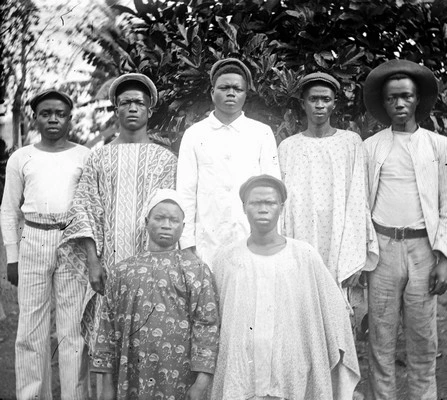Table of Contents
- The Concept of Slavery
- Historical Perspectives on Slavery
- The Social Structures of Slavery
- The Economic Dimensions of Slavery
- Resistance and Abolition
- The Legacy of Slavery
- Conclusion
Slavery is one of the most profound and enduring social institutions in human history. It involves the exploitation of people as property, stripping them of their autonomy, rights, and freedom. This system, which has existed in various forms across time and space, is deeply embedded in the economic, political, and cultural frameworks of different societies. From ancient civilizations to the transatlantic slave trade and beyond, slavery has left an indelible mark on the social fabric of human civilization. Understanding slavery from a sociological perspective requires an exploration of its structural components, the social relations it creates, and the ways it intersects with other social institutions such as the family, economy, and law.
The Concept of Slavery
Slavery can be understood as a social institution wherein individuals are owned and controlled by others. Sociologically, slavery is not just a relationship between individuals but also a complex system of power and domination, deeply entrenched in society’s cultural and material foundations. Slaves are often dehumanized, considered property, and denied the basic human rights accorded to free individuals. This system is based on coercion, and the enslaved are usually subjected to violence, forced labor, and the denial of freedom.
From a sociological lens, slavery operates as a form of social stratification, where the enslaved occupy the lowest status in society. Social stratification refers to the hierarchical arrangement of individuals based on power, prestige, and wealth. In the case of slavery, the hierarchical system is rigid, with the enslaved permanently placed at the bottom of the social order. This stratification serves to maintain and reproduce systems of inequality, not only in terms of labor and resources but also in terms of social recognition and rights. The institution of slavery becomes a way to legitimize and perpetuate inequalities that serve the interests of the dominant group.
Historical Perspectives on Slavery
The institution of slavery has existed in various forms throughout human history. In ancient societies such as those in Greece, Rome, and Egypt, slavery was a common practice, albeit with different social, economic, and political implications. In these societies, slaves were often prisoners of war or individuals who had been enslaved due to debt. While the brutality of slavery was pervasive, there were also instances in which enslaved individuals could attain certain levels of status, albeit within the constraints of the institution. For example, some slaves in ancient Rome could buy their freedom or become influential within their households.
However, the form of slavery most often associated with modern discussions is that of the transatlantic slave trade, which flourished from the 16th to the 19th centuries. The transatlantic slave trade was an economic system in which African individuals were forcibly transported to the Americas to work primarily in agricultural production, such as in the plantations of the Caribbean and Southern United States. This system was driven by capitalist expansion and European colonialism, creating a global market for the exchange of human beings. The brutality of this system was unparalleled in its scope and dehumanization, with millions of Africans kidnapped, brutalized, and commodified.
The transatlantic slave trade is also significant from a sociological perspective because of the racialization of slavery. While slavery in earlier societies was not necessarily based on race, the transatlantic system introduced a racial hierarchy in which Africans were considered biologically inferior to Europeans. This racialized form of slavery laid the groundwork for modern concepts of race and racism, with long-lasting implications for social inequalities in contemporary societies.
The Social Structures of Slavery
Slavery, as a social system, was not merely a set of economic arrangements but also deeply intertwined with other social institutions. The family, law, and religion all played significant roles in maintaining the institution of slavery and reinforcing its legitimacy.
Family and Slavery
One of the most devastating aspects of slavery was its impact on the family. In many slave systems, particularly in the Americas, the family structure of enslaved individuals was systematically undermined. Enslaved people were often denied the right to legally marry, and families could be torn apart at any time, as individuals were sold to different owners. The family unit, which serves as a primary source of socialization and identity in free societies, was therefore rendered fragile and precarious under slavery.
However, enslaved individuals often resisted this dehumanization by creating their own kinship structures. Sociologically, this represents a form of agency within the constraints of domination. Enslaved individuals forged bonds with one another, creating fictive kinship ties and networks of support. These bonds became crucial for survival and resistance, as they provided a source of emotional support and community in the face of oppression.
Law and Slavery
The legal system played a crucial role in sustaining the institution of slavery. In many societies, laws were explicitly designed to legitimize and regulate the practice of owning human beings. For example, in the United States, the legal doctrine of “partus sequitur ventrem” ensured that the status of a child followed that of the mother, effectively guaranteeing that the children of enslaved women would themselves be born into slavery. This law not only ensured the perpetuation of the slave labor force but also reinforced the idea that slaves were property, not people.
Legal frameworks were also instrumental in justifying the use of violence to maintain control over enslaved populations. Enslaved individuals had no legal rights, and their owners were permitted to use physical punishment, including whipping and execution, to maintain order and productivity. The law thus functioned as a tool of coercion, reinforcing the social relations of domination and submission that defined slavery.
Religion and Slavery
Get the full article AD FREE. Join now for full access to all premium articles.
View Plans & Subscribe Already a member? Log in.





